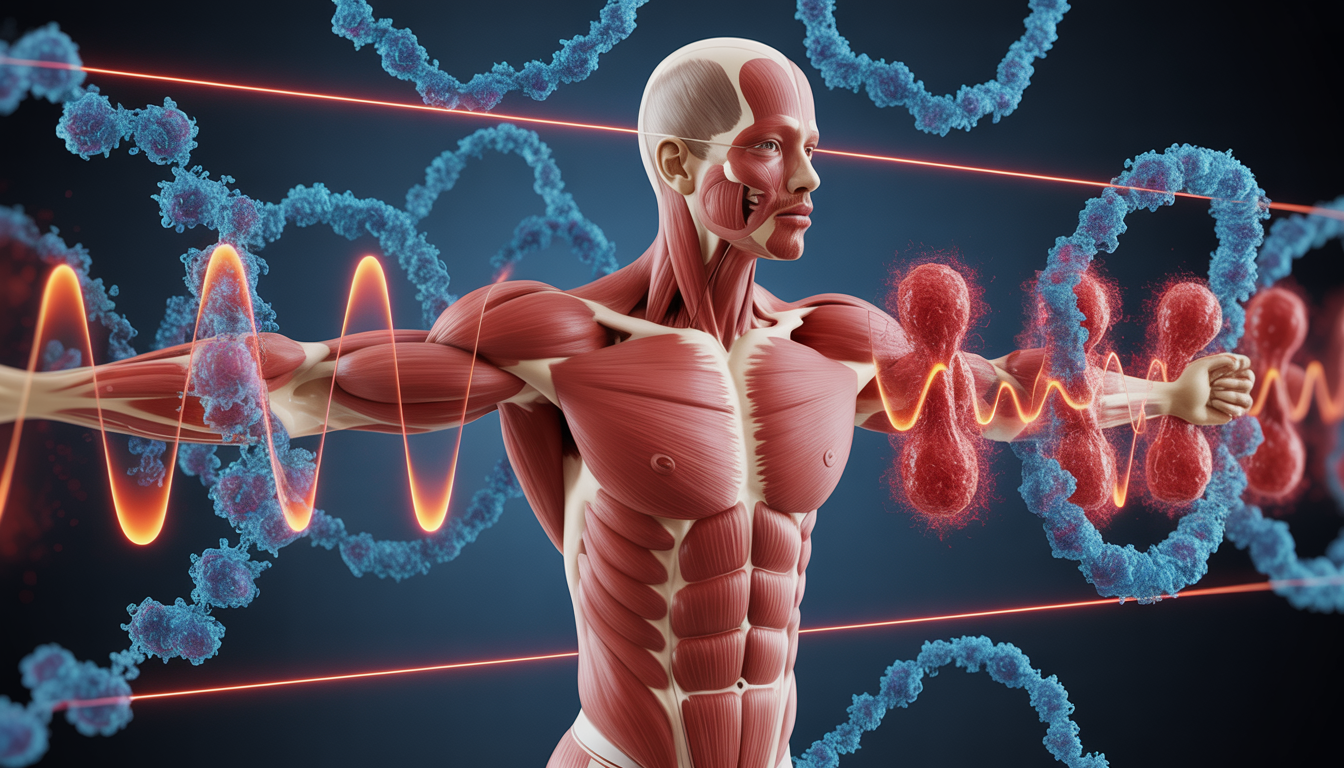


How Green Tea Affects Liver Function
By Steve Blechman
Is green tea bad for your liver function? It was reported by Medical Xpress on December 1st, 2022 that green tea extract "may create liver damage in a small minority of the population."
"Who is at risk? Research from Rutgers published in the Journal of Dietary Supplements provides the first solid clue: two genetic variants that predict some of the risk."
"Using data from the Minnesota Green Tea Trial, a large study of green tea's effect on breast cancer, the research team investigated whether people with certain genetic variations were more likely than others to show signs of liver stress after a year of ingesting 843 milligrams per day of the predominant antioxidant in green tea, a catechin called epigallocatechin gallate (EGCG)." Past research has shown that EGCG may be hepatotoxic in high dosages and cause egcg liver damage in susceptible individuals. "They selected the Minnesota Green Tea Trial because it was a large, well-designed study of a unique population. The year-long, placebo-controlled trial included more than 1,000 postmenopausal women and collected data at 3, 6, 9 and 12 months." Liver damage was most common among the women with one of the two genetic variants (UGT1A4) genotype that controls the synthesis of the enzyme that breaks down EGCG in the liver. "On average, participants with the highest risk UGT1A4 genotype saw the enzyme that indicates liver stress go up nearly 80% after nine months of consuming the green tea supplement, while those with low-risk genotypes saw the same enzyme go up 30%."
Hamed Samavat, senior author of the study and assistant professor of Nutrition Sciences at the Rutgers School of Health Professions said, "We're still a long way from being able to predict who can safely take high-dose green tea extract." It was also "noted the risk of egcg liver toxicity is only associated with high levels of green tea supplements and not with drinking green tea."
In its natural form, a cup or two of green tea will not harm you (if used properly). Just ask the Japanese. They've been drinking it for centuries. As I mentioned previously, green tea consists of a potentially liver-toxic catechin at high concentration called epigallocatechin-3-gallate (EGCG).
I have been aware and have been writing about potential dangers of green tea extract containing concentrated epigallocatechin-3-gallate (EGCG) concentrate since 2014. There has been a large amount of liver toxicity cases due to EGCG over the years. I have been advocating against high dosages over long periods of time; I would never take concentrated green tea extract rich in EGCG as a dietary supplement, or as a fat burner or weight-loss aid, for any long period of time.

Concentrated green tea extract should not be taken by people who drink alcohol or take acetaminophen (Tylenol). Also, reports have shown that green tea extract rich in EGCG is even more toxic to the liver when taken on an empty stomach. Many people take weight-loss products or energy drinks with green tea extracts on an empty stomach before a workout, which can increase the risk of liver toxicity and negatively impact liver health!
The liver toxicity and mechanism of action might be because EGCG produces reactive oxygen species (ROS) and can cause tissue damage. It is possible that ROS-derived free radicals might be damaging the liver. Drinking brewed green tea is safe as long as it's not to excess. Green tea supplements, high in EGCG particularly, have become very popular in the last few years, but studies about them are alarming when taking high doses over long periods of time.
So what's the catch? Whenever we discuss fat-loss supplements, we always have people who tend to take things to the extreme and live by the "more is better" philosophy. There are specific symptoms to watch out for when it comes to liver damage or liver injury. Symptoms of liver injury include:
- Loss of appetite
- Jaundice (yellowing of the skin or yellowing in the eyes)
- Brown or dark urine
- Nausea/vomiting
- Excessive fatigue
- Weakness
- Stomach or abdominal pain
- Itching
- Loss of appetite
Maintaining liver health is crucial, and individuals should consider liver support supplements to help mitigate risks associated with high-dose green tea extracts.
If any of these symptoms appear, please go to your nearest emergency room. Consumers should know that most dietary supplements are safe, but there is the potential for herbal toxicity from some supplements. Just because it's natural - doesn't mean that it is safe!
References:
1. Green tea extract may harm liver in people with certain genetic variations by Rutgets University. December 1, 2022. Medical Xpress. https://medicalxpress.com/news/2022-12-green-tea-liver-people-genetic.html
2. Yu Z, Samavat H, Dostal AM, Wang R, Torkelson CJ, Yang CS, Butler LM, Kensler TW, Wu AH, Kurzer MS, Yuan JM. Effect of Green Tea Supplements on Liver Enzyme Elevation: Results from a Randomized Intervention Study in the United States. Cancer Prev Res (Phila). 2017 Oct;10(10):571-579. doi: 10.1158/1940-6207.CAPR-17-0160. Epub 2017 Aug 1. PMID: 28765194; PMCID: PMC9257888.
3. Oketch-Rabah HA, Roe AL, Rider CV, Bonkovsky HL, Giancaspro GI, Navarro V, Paine MF, Betz JM, Marles RJ, Casper S, Gurley B, Jordan SA, He K, Kapoor MP, Rao TP, Sherker AH, Fontana RJ, Rossi S, Vuppalanchi R, Seeff LB, Stolz A, Ahmad J, Koh C, Serrano J, Low Dog T, Ko R. United States Pharmacopeia (USP) comprehensive review of the hepatotoxicity of green tea extracts. Toxicol Rep. 2020 Feb 15;7:386-402. doi: 10.1016/j.toxrep.2020.02.008. PMID: 32140423; PMCID: PMC7044683.
4. Vuppalanchi R, Bonkovsky HL, Ahmad J, Barnhart H, Durazo F, Fontana RJ, Gu J, Khan I, Kleiner DE, Koh C, Rockey DC, Phillips EJ, Li YJ, Serrano J, Stolz A, Tillmann HL, Seeff LB, Hoofnagle JH, Navarro VJ; Drug-Induced Liver Injury Network. Garcinia cambogia, Either Alone or in Combination With Green Tea, Causes Moderate to Severe Liver Injury. Clin Gastroenterol Hepatol. 2022 Jun;20(6):e1416-e1425. doi: 10.1016/j.cgh.2021.08.015. Epub 2021 Aug 14. PMID: 34400337; PMCID: PMC9004424.
5. LiverTox: Clinical and Research Information on Drug-Induced Liver Injury [Internet]. Bethesda (MD): National Institute of Diabetes and Digestive and Kidney Diseases; 2012-. Green Tea. [Updated 2020 Nov 20]. Available from: https://www.ncbi.nlm.nih.gov/books/NBK547925/
6. Hirsch N, Konstantinov A, Anavi S, Aronis A, Hagay Z, Madar Z, Tirosh O. Prolonged feeding with green tea polyphenols exacerbates cholesterol-induced fatty liver disease in mice. Mol Nutr Food Res. 2016 Dec;60(12):2542-2553. doi: 10.1002/mnfr.201600221. Epub 2016 Aug 22. PMID: 27432221.
7. Shi Z, Zhu JX, Guo YM, Niu M, Zhang L, Tu C, Huang Y, Li PY, Zhao X, Zhang ZT, Bai ZF, Zhang GQ, Lu Y, Xiao XH, Wang JB. Epigallocatechin Gallate During Dietary Restriction - Potential Mechanisms of Enhanced Liver Injury. Front Pharmacol. 2021 Jan 29;11:609378. doi: 10.3389/fphar.2020.609378. PMID: 33584288; PMCID: PMC7878556.
8. Schönthal AH. Adverse effects of concentrated green tea extracts. Mol Nutr Food Res. 2011 Jun;55(6):874-85. doi: 10.1002/mnfr.201000644. Epub 2011 Apr 29. PMID: 21538851.
9. Schönthal AH. Adverse effects of concentrated green tea extracts. Mol Nutr Food Res. 2011 Jun;55(6):874-85. doi: 10.1002/mnfr.201000644. Epub 2011 Apr 29. PMID: 21538851.
10. Bessone F, García-Cortés M, Medina-Caliz I, Hernandez N, Parana R, Mendizabal M, Schinoni MI, Ridruejo E, Nunes V, Peralta M, Santos G, Anders M, Chiodi D, Tagle M, Montes P, Carrera E, Arrese M, Lizarzabal MI, Alvarez-Alvarez I, Caballano-Infantes E, Niu H, Pinazo J, Cabello MR, Lucena MI, Andrade RJ. Herbal and Dietary Supplements-Induced Liver Injury in Latin America: Experience From the LATINDILI Network. Clin Gastroenterol Hepatol. 2022 Mar;20(3):e548-e563. doi: 10.1016/j.cgh.2021.01.011. Epub 2021 Jan 9. PMID: 33434654.




